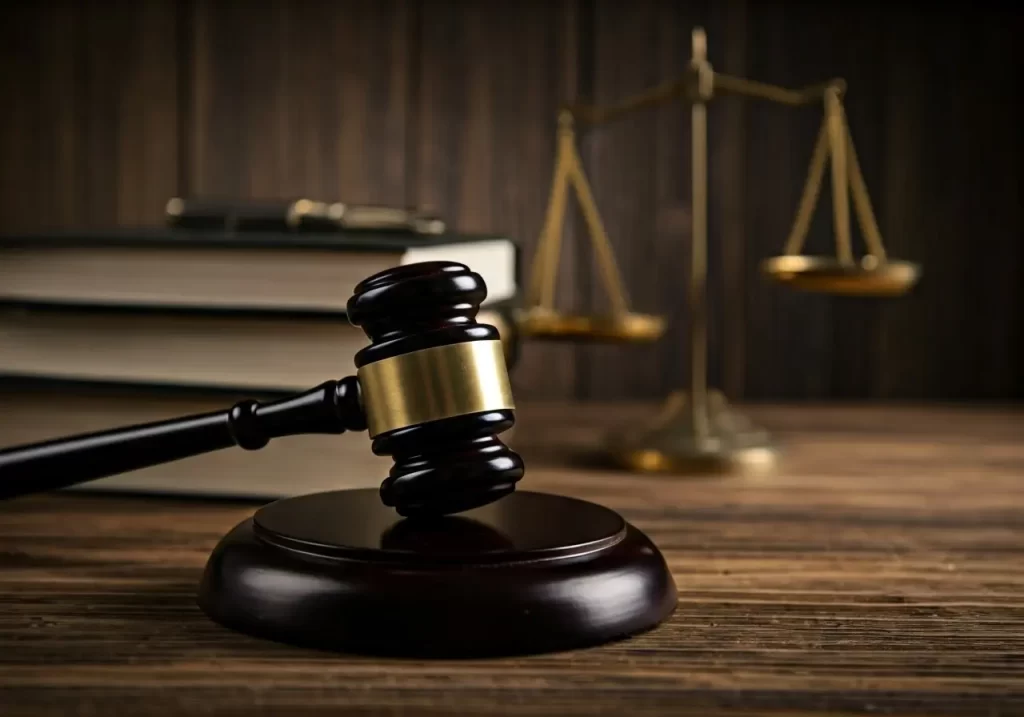Finding the right DUI lawyer in South Jersey can greatly impact the outcome of your case. With numerous options available, navigating through the choices might feel overwhelming. This guide aims to simplify the process by offering essential tips to help you choose a DUI lawyer suited to your needs.
1. Understanding the Stakes Involved
Before diving into the selection process, it’s crucial to understand what’s at stake with a DUI charge. Penalties can range from fines to jail time, so having a proficient lawyer is essential. DUI charges in New Jersey have significant consequences, including the possibility of losing your license for several months or even years as outlined in NJ DUI laws. Beyond legal consequences, a DUI conviction can also impact your insurance rates and future employment opportunities. This initial understanding allows you to grasp why having a skilled DUI lawyer is not just important, but necessary for protecting your rights and shaping your future.
One of the main challenges of navigating a DUI charge in South Jersey is its impact on your everyday life. Understanding the local judicial landscape, as well the nuances involved in DUI cases in New Jersey, can be daunting. That’s why it’s indispensable to have an attorney who fully understands local DUI regulations and nuances and has a proven track record. With the stakes being so high, it’s critical to approach the choice of representation thoughtfully and informed.
2. Researching Potential Candidates
Start by compiling a list of potential DUI lawyers in South Jersey. Utilize online reviews and referrals to narrow down your list. The local bar association is another resource to help you locate qualified attorneys in your area. Personal recommendations from friends or family who have been through similar situations can provide trusted insights. It is important to look for patterns in reviews—both good and bad. Reviews can reveal a lot about a lawyer’s consistency with clients and their ability to handle cases effectively.
An online presence can be incredibly telling. Does the lawyer or law firm you’re considering offer comprehensive information or client testimonials? Their digital footprint should reflect professionalism and demonstrate a deep understanding of DUI laws. Legal directories and forums are additional resources where you can discover more about potential lawyers’ reputations and experiences. Ultimately, your goal is to create a shortlist of candidates deserving of further investigation.
3. Assessing Credentials and Experience
When it comes to legal matters as serious as a DUI, credentials and experience can’t be overlooked. Make sure to verify that the lawyer is licensed in New Jersey. An attorney with specific experience in DUI cases is more likely to understand the unique challenges and opportunities they present. Find out how long they have been practicing and how many DUI cases they have handled in your local courts by consulting them directly. This experience can mean the difference between losing your license and retaining it.
Diverse experience within related criminal law fields can also be advantageous. A broad background in handling different types of criminal cases can enhance a lawyer’s strategic thinking about DUI defense. This comprehensive experience enables them to form robust defenses tailored to particular aspects of your case. Never hesitate to ask potential lawyers for specific examples of previous cases similar to yours. Real-world case studies can provide reassurance and insight into how they might approach your case.
4. Evaluating Communication Skills
A lawyer’s ability to communicate effectively is a cornerstone of successful legal representation. Evaluate how well they explain legal procedures and whether their communication style suits your preferences. You need a lawyer who can simplify the complexity of DUI laws and court procedures for you. They should be prompt and respectful in their responses to your inquiries, ensuring that you never feel left in the dark. As the legal process unfolds, your lawyer should make an active effort to keep you updated on your case’s progress and developments.
5. Considering the Lawyer’s Availability
Ensure that the lawyer has sufficient time to dedicate to your case. An overburdened attorney may not provide the attention your case deserves, which can be detrimental when dealing with the nuanced complexities of DUI defense. During initial meetings, inquire about how many cases the lawyer is currently handling. Gauge whether they have the bandwidth to offer your case the focus it requires by contacting their office. It’s essential to choose a lawyer who can prioritize your defense as needed.
6. Contemplating Legal Fees
Understanding the fee structure of a DUI lawyer is vital as you begin your search. Some attorneys charge a flat rate, while others bill by the hour. It’s important to clarify any additional costs upfront, including court fees, expert witness costs, or paperwork expenses. Ensure to compare the quoted fees with other lawyers to verify you’re receiving a fair but also effective legal representation. Remember, that an affordable price does not always equate to quality services, and you should weigh all factors before making your decision.
7. Scheduling an Initial Consultation
An initial consultation with a potential lawyer provides the perfect opportunity to assess their qualifications. Prepare questions beforehand to gain insight into the lawyer’s experience and approach. Topics to discuss might include their familiarity with local DUI regulations, how they might approach your defense, and their history with similar cases. This first meeting is also a chance to gauge whether you feel comfortable with them, which is essential for a productive attorney-client relationship; every question answered and every uncertainty quelled provides a step towards informed decision-making.
8. Judging Confidence without Overconfidence
While confidence is important, be cautious of lawyers who guarantee outcomes. Legal cases are unpredictable, and no one can promise a result. A well-grounded lawyer should offer a realistic assessment of your case, discussing both potential benefits and risks, without promising specific results. Overconfidence can lead to complacency during negotiations or trial proceedings. Trust an attorney who is candid about their assessment of your situation, as well as clear about your options moving forward. Transparency breeds trust, and this is paramount when selecting legal representation.
9. Reading Reviews and Testimonials
Reviews from previous clients can offer significant insights into a lawyer’s reputation and reliability. Testimonials often highlight a lawyer’s strongest attributes or point to potential red flags. Pay attention to patterns in feedback. Are there consistent mentions of stellar negotiation skills or exceptional dedication? Past clients’ shared experiences can guide you in assessing whether a lawyer’s skills and approach mesh with what you’re seeking. While every client experience is unique, consistent feedback can be a strong indicator of what you might expect from a particular lawyer.
Be wary of reviews that seem excessively positive or overly negative without detailed explanations. A balanced perspective from numerous sources often provides the most accurate portrayal of an attorney’s capabilities. You should take the extra step to reach out to previous clients if possible. Direct communication will allow you to ask detailed questions about any concerns or doubts raised in reviews, leading to an informed decision.
10. Seeking Recommendations
Personal recommendations can add another layer of trust to your decision-making process. If friends or family have navigated a similar situation, their experiences can prove invaluable. They can provide insights from firsthand experience, often noting strengths or shortcomings that you may not glean from traditional research methods. Even a friend’s experience with the broader legal process can prepare you for what to expect, easing initial anxieties.
Moreover, reaching out to a network of professionals with active connections in the legal community can expand your options. Whether through acquaintances in law enforcement or professionals within the judicial system, these networks might suggest reputable DUI lawyers, amplifying your chances of finding a quality attorney who comes highly recommended.
11. Assessing the Lawyer’s Track Record
Investigating a DUI attorney’s track record is a tangible measure of their capability. Understand how successful they have been in obtaining favorable outcomes for cases similar to your own. This may include details about negotiated plea deals, trial outcomes, or dismissal rates. A history of positive results isn’t just encouraging; it showcases their strategic acumen and proficiency in navigating the local legal landscape.
Don’t just stop at wins versus losses. The progression and management of past cases can be revealing about a lawyer’s commitment and diligence. Speak to them directly about how they’ve handled cases like yours, especially those with unique or challenging aspects. A lawyer who transparently shares insights into their approach further demonstrates their competence and thoughtfulness in DUI defense.
12. Trusting Your Instincts
Ultimately, trust your gut feeling when selecting a DUI lawyer. Beyond skills and credentials, it’s important to feel a connection with your attorney, based on mutual respect and confidence in their ability to navigate the complexities of your case. The right lawyer should inspire trust and make you feel comfortable—elements that are essential for an effective attorney-client relationship. After all, choosing the right professional personifies an investment in your future and peace of mind during a challenging period.
Sometimes, even after extensive research, there may be a candidate you keep returning to—a strong reminder that instincts are a valid part of this decision-making process. Your choice should combine objective analysis with intuitive alignment, ensuring that you have a dedicated legal advocate by your side at every step of your journey.


